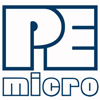Home > On-Demand Archives > Q&A Sessions >
Live Q&A - Improve your Embedded IoT Hardware Today
Chris Gammell - Golioth - Watch Now - EOC 2023 - Duration: 35:29

I enjoyed the talk. I'm retired now, but my company used to do several of these things. We had several processor boards, and a line of peripheral boards that used common interfaces. We'd try to sell customers on using our stock products to prototype what they wanted, with the option of getting a custom design once things were working if their production run would be big enough to justify it. It didn't always work; sometimes, they wanted the custom board from the start.
My big problem, as a firmware engineer, was getting the hardware engineer to put test points and accessible I/O on the board for my testing. He had the habit of designing optimized, cost-reduced hardware from the get-go. Unless there was a significant problem discovered, rev A was the final hardware.
Great Talk. You have given a bunch of things to go research more.
Thanks Chris, enjoyed your talk, love your podcast. Hope to see more of you in future conferences.
15:59:07 From Chris Gammell to Stephane(Direct Message) : can't seem to unmute myself? 15:59:35 From Chris Gammell : can't seem to unmute 16:10:31 From Mike Foss (NIWC PAC) : How do you handle it when you need something like DMA support for a UART, but the vendor hasn't included that in Zephyr? Is it better to figure out how to put it in yourself or nag the vendor? 16:12:12 From Mike Foss (NIWC PAC) : Thank you! 16:14:40 From Nathan O. : How does Zephyr works in terms of low power ? I have worked with FreeRTOS and its tickless mode before and am wondering if something similar is available in Zephyr 16:17:20 From Rishav Vatsa : Which power management strategy is more convenient for deep sleep/wake up? Handling it using AT command (software) or using hardware gpio pins? 16:17:32 From Jay : Is there a good documentation resource for device tree? From experience with LInux, I've found that the documentation is limited and I end up figuring out the device tree parameters by reading through Linux kernel module source code, for example. 16:20:49 From Nathan O. : What was the response on the LED / gpio output topic ? 16:20:53 From Jay : Thank you for the answer. 16:22:55 From Mike Szczys : I think this is the video I remember that helps with a log of insight into how Devicetree works in Zephyr and how to target your DT nodes from C code: https://www.youtube.com/watch?v=sWaxQyIgEBY 16:24:22 From Mike Szczys : This might be a little daunting if you've never tried out Devicetree, but the docs have a lot of tricks and example: https://docs.zephyrproject.org/latest/build/dts/index.html 16:26:18 From Chris Gammell : we write about this stuff on our blog every week as well! https://blog.golioth.io 16:27:05 From Mike Szczys : On the GPIO vs. LED question. In my case, I only needed to set a GPIO pin level at boot time and I was directed to the gpio_hogs system which lets you do that without any C code at all. I is all handled via Devicetree 16:27:23 From Herman Roebbers : (How) do you combine CI/CD with energy consumption monitoring? 16:27:32 From Amy McNeil : How do you manage revision distribution for embedded devices that don't normally get regular updates in the field, under a CI/DC environment? 16:29:50 From Rishav Vatsa : How can we cascade CI/CD for OTA rollouts? 16:38:16 From RF : Enthusiastic mix, thanks 16:38:22 From Raul Pando : Thanks guys 16:38:23 From Jay : Thanks! 16:38:24 From arianafaustini : Thank you!





















I echo Steve's comment below. Even getting the HW engineer's to preserve unconnected I/Os to test points was difficult. These are invaluable in synthesizing HW outputs to match internal FW states (e.g., interrupt handler entry and exit). LEDs are really useful in showing state and activity as well.